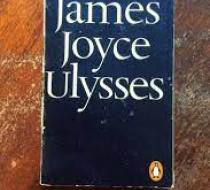United States v. One Book Named Ulysses Favorite
In 1932, Bennett Cerf, cofounder of Random House Publishing, acquired the rights to publish James Joyce’s Ulysses in the United States, believing that the book would be as successful as it had been throughout Europe. But Cerf had a problem. The book was banned in the United States and would be seized as soon as it came off the printing press, which would lose Cerf millions of dollars. And because of the ban, there were several pirated versions of the books floating around that threatened the original text.
Cerf and his attorney, Morris Ernst, could have launched a campaign to raise Americans’ awareness of the literary significance of the book or the harms of censorship. They could also have printed the book in the face of the ban, which might have generated headlines. But that would have brought them no closer to getting the ban removed. They chose a different path.
Ernst identified a US District Court judge in New York City, John Woolsey, who was known for his support of the First Amendment and who had struck down several rulings on obscenity. Then Cerf and Ernst hired a man to board the Aquitania ocean liner in Europe with a copy of Ulysses in his bag and disembark in New York City, where the book would be impounded by customs, and the smuggling case would make it to Woolsey’s courtroom. Cerf and Ernst knew that no additional documents would be considered in the case and that only what was contained between the book’s covers would be admissible as evidence. So they stuffed a copy of the book with every piece of literary critique they could find—including an essay by writer Ezra Pound—citing the book’s contribution to literature.
As expected, the man and his copy of Ulysses were detained at customs, and the case went to court in fall 1933. In his decision, United States v. One Book Named Ulysses, Woolsey wrote, “Each word of the book contributes like a bit of mosaic to the detail of the picture which Joyce is seeking to construct for his readers.” Cerf and Ernst won the case, and the book was on the press within 10 minutes of the ruling. Their sophisticated approach to the problem not only brought one of the world’s most important pieces of literature to the United States, but also resulted in what Ernst called “a bodyblow for the censors.”
Cerf continued to fight against censorship of important literature, and Ernst went on to become one of the founders of the American Civil Liberties Union (ACLU). Their story provides a critical lesson for social change: When you are clear about your goal and find the right strategy, your target audience may be as narrow as a single person.







